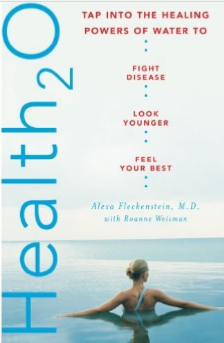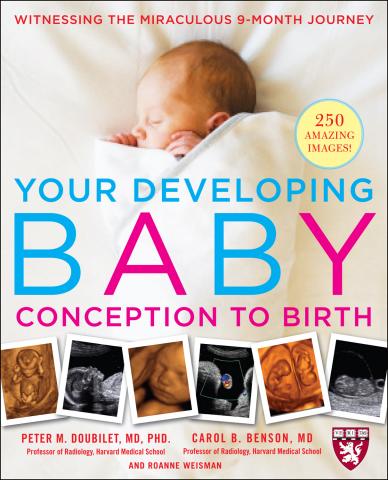Senator Kennedy’s recent diagnosis of a malignant brain tumor has sparked an animated debate in the Boston Globe among health columnists and letter writers: Should patients diagnosed with a deadly cancer be encouraged to fight their disease, or should they focus more on quality of life and the journey towards spiritual—if not physical—healing? The “fight” proponents use the vocabulary of warfare: “vanquishing” the cancer “enemy” with every available “weapon” in the “arsenal.” One problem with this approach is that if you fight and lose, there may be guilt: Perhaps you didn’t fight “hard” enough.
The advocates of acceptance and healing say control what you can, choose your doctors and your treatments wisely, but also choose to spend time and energy on family, relationships, meaningful work, and finding joy in every moment. As one letter writer said, “Cancer is a disease, not an enemy. It also presents a deep opportunity to learn. My quest is to live each day as fully and richly as I can, to enjoy all that I have, and all the beauty and meaning of this world.”
A contrasting view came from an oncology nurse, who wrote that the notion of “fighting to win,” is too narrow: “Perhaps one’s fight could mean mustering resources against an enemy – cancer. Or it could mean winning against symptoms, or against the urge to stay at home during treatment and not work. Or beating the maze of our healthcare system, and getting the treatment you need when you need it!”
Perhaps “to fight or not to fight” is the wrong question, since there is no universal approach to illness that is right for every person. Several years ago, when I recovered from my own health challenge, and wrote my first book filled with the stories of people who fought and prevailed against cancer, paralysis, pain and deadly diseases, I thought that fighting was the only acceptable way to deal with illness.
Now, I am not so sure. Marshalling every available medical, alternative, emotional and lifestyle resource does give us more of a chance to overcome illness and injury, and perhaps to discover the latest “silver bullet” in the arsenal. But at what cost? There is also a value to the inward journey for peace, and nurturing loving connections with others. How best to combine these approaches given the limitations of energy and time?
Once, I interviewed a wise rabbi about the ways in which he helps people deal with suffering and illness. He described a state of holding two simultaneous beliefs: The desire to become well and “vanquish” the disease; while at the same time accepting the possibility of—and preparing yourself and your loved ones for—a different outcome. This is clearly very hard to do: One must gather the inner strength and energy—as well as the time—to pursue treatments, seek medical options, eat well, and think positively. All while somehow recognizing and accepting that you may not succeed. No easy answers. I’m still thinking.





To fight or not to fight should be left up to the patient. Everyone is different, and each has their own outlook.
For someone unwilling to “fight”, the downhill course can be quite rapid. On the flip side, another person may be a NATURAL fighter, and prolong their life with relatively decent quality beyond what the average expectations were predicted to be.
LikeLike
I’m thinking also.
If the premise is that disease is our “enemy” we may therefore try to kill our enemy, but we will inevitably lose the war. If disease is an enemy, life becomes war! Our bodies then become the battlefields which get bombarded with nuclear bombs (nuclear medicine), perforated by bayonets (syringes and perfusion needles), cut up into territories(surgery), drugged and/or intoxicated(medicated by toxic, sometimes lethal and/or psychotropic drugs), put to sleep(anesthetised) and eventually killed(euthanized).
It’s because we are so close to death that we fear it and so desperately want to run away from it or “vanquish” it by trying to make it disappear. No matter how much we try to deny its reality, it still haunts us, blowing its icy cold breath down our vulnerable naked necks.
Denial of death makes us mentally sick. As most of us know, denial is a defense mechanism: a neurosis which, if pushed to its limit, can become a psychosis: i.e. a denial or a deformation of reality. Death is the ultimate reality. Some of us fear it because we don’ know it. We are led to believe that what we don’t know, we can’t control. What we can’t control will most certainly kill us: right?
Obnubilated, our modern, sophisticated and super “scientophiliac” and “technophiliac” societies can’t really appreciate what LIFE is. Our obsessions are physical: not metaphysical.
The “guerrillas” amongst us who “fight” disease with their medico-scientific guns are blind and therefore can’t see the real enemy. Our worst enemy is the “the fruit of the tree of the knowledge of good and evil”. In our ironclad pride, we have placed ourselves at the level as the “gods” we have created. We want to be as “immortal gods” thus “ruling over death”. Once again, we are succumbing to our obsession with death and not yet wise enough to accept and to live both our lives AND deaths fully.
If our lives have no meaning, can death?
Pierre E. Faubert, psychologist
LikeLike
Thank you jeffsher63, for pointing out that some people are, in fact “natural” fighters, something I had not thought of. For such people, engaging in the battle may well be the best—perhaps the only— way to cope with illness.
And Pierre – thank you for your eloquent reminder of our human limitations, and for your perspectives about the locus of control.
LikeLike
When I was diagnosed with Stage IV cancer in July of ’04, I was told by the great docs in my state that there was no hope. I was 43. I chose to do a lot of research and found a great hospital with great doctors who were willing to keep me alive.
I have had no evidence of cancer since September of ’04. I never felt that I fought anything. All I did was put one foot in front of the other, found doctors who were willing to fight for me, signed up for a clinical trial and then show up for my appointments, treatments and procedures.
The only fight I had was with my insurance company who initially refused to pay for anything.
I agree, it is a patients choice. I’ve met other patients, dx’d with a lot lower stage than I, and chose to do nothing. Some are no longer with me. But I never fought or struggled with my disease. If I had any problems, I informed the awesome medical personnel, and they did their job and they fixed me. I worked 10+ hours a day, so I could take two days of comp every other week for treatment for the 16 hour round trip drive for treatment. Again, I did not suffer, I did not struggle, I did not fight.
I just put one foot in front of the other, and at that, they were baby steps.
LikeLike
An inspiring story, cptmac, and wise. Thank you.
LikeLike
I am not sure what I would do. I like to think that I would fight but would I have the strength to do it?
Interesting post. I will be back to read again
LikeLike
Tony, you are right: None of us knows what we would do until we are faced with the actual reality of disease. For me, at the time of the stroke, fighting was the only option. I did not feel as if I had a choice. But I did not have cancer, so I have no idea how I would react to that diagnosis. I hope I would be able to combine fighting with personal growth.
LikeLike
I can’t speak to cancer, as I’m fortunate to never have been diagnosed with it. But I do struggle with chronic illness – a rather severe form of chronic migraines – and a lot of what you talk about here is very applicable to chronic illness as well as terminal illness.
I will have migraine disease the rest of my life. It may go into “remission” and become better on its own. Right now I’m looking for an effective treatment plan that will allow me to regain my quality of life. But I’ve had to learn to live with the disease, to accept it as part of me, while still persevering to find an effective treatment.
Viewing it as a “fight” is couching it in too-harsh terms. It implies a violence toward my illness that is not there. While there is a lot of anger and resentment that I deal with, I don’t see it as the violence implied by a “fight”.
In coming to terms with my disease – something I work on daily – I’ve had to learn to pursue treatment aggressively without feeling like it’s a “fight” I have to “win”. I can’t “win” against a chronic illness. The best I can hope for is effective treatment and continuing to live a healthy lifestyle.
My migraines have forced me to learn to be at peace with myself in a way I wasn’t before. If I can’t be at peace with myself, then I can’t hope to learn that delicate balance of acceptance without just settling to “live with the pain”.
Thanks for a thoughtful post.
Be well,
MJ
LikeLike
Dear MJ,
Thank you for your eloquent description of living with a chronic disease (an experience I share). Achieving that delicate balance of peace with a healthy lifestyle is hard to achieve. I couldn’t tell from your post—are you exploring alternative/complementary approaches (such as herbs and acupuncture) as well?
Roanne
LikeLike
Hi
Good article. “Fighting” though means different things to different people. For example in the West we tend to see it as a trial of strength and stamina over an opponents strength and stamina.
However, in some Eastern martial arts such as some systems of JuJutso, the “fighter” is likened to a willow tree. In a storm, the mighty oak can get blown down, but a willow tree will flex with the wind and be left standing afterwards. In martial art terms, that means deflecting an attack, taking them off-balance and using the opponents force against them; rather than trying to be more forceful than they are.
We can “fight” cancer in a similar way with our approach to life. Don’t fear it. Don’t let it rule your life. Take proper treatment of course (be it conventional or alternative). But remember, you may have cancer, but cancer doesn’t necessarily have you.
LikeLike
Thank you for reminding us that we can surrender while still deflecting the disease. I take tai chi and have learned similar ideas. Thank you for your thoughtfulness, Charlie.
LikeLike